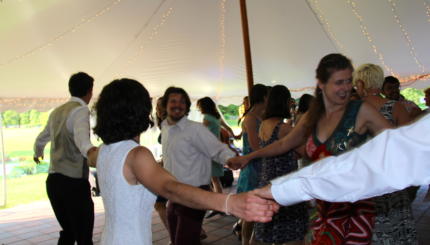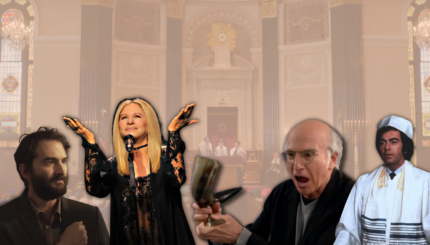Reprinted with permission from Jewish Action, the magazine of the Orthodox Union. This is the first of a two-part article.
In an obituary for Cantor Josef Rosenblatt, whose 70th yahrtzeit [the anniversary of the date of his death] was observed in 2003, The New York Times noted, “He was so well known in this country that letters from Europe addressed to ‘Yossele Rosenblatt, America,’ reached him promptly.”
No other hazzan [cantor] has ever attained such nationwide popularity and fame among both Jewish and Gentile audiences as Yossele Rosenblatt, while remaining completely observant and retaining his position at the amud [podium of the synagogue]. There have been some who became world famous, such as the celebrated tenor Richard Tucker, who also began his career as a cantor. Tucker, however, was not Orthodox, and once he became a star of the Metropolitan Opera, he led congregations only on the Yamim Noraim [High Holidays] or on Pesach.

Rosenblatt, on the other hand, despite having turned down offers to appear in the opera, rose to become a star of the entertainment world of the 1920s, all the while wearing his large black yarmulke and frock coat. He endeared himself to all who heard him, whether in person or in his recordings. His enormous popularity was evident even decades after his death.
Early Talents
Yossele was born in 1882 in the Ukrainian shtetl [small village] Belaya Tserkov–the first boy in the family after nine girls.His father, a Ruzhiner Hasid who frequented the court of the Sadagora Rebbe, was himself a hazzan. Recognizing his young son’s extraordinary talent, Yossele’s father began to tour with his son to help supplement the family income. The father would daven [pray] as the hazzan, but it was the child prodigy, Yossele, whom the crowds came to hear.
When he was 18 and just married, Rosenblatt accepted his first permanent position in Munkacs, Hungary. His creative genius as a composer had already begun to bloom, and he soon found the atmosphere in Munkacs too confining. When the position of Oberkantor (chief cantor) in the more forward-looking city of Pressburg, Hungary, became available, Rosenblatt, still only 18 years old, was chosen over 56 other candidates.
Standing not much more than five feet tall, Rosenblatt was still a commanding figure with his heavy, dark beard and fastidious appearance. He possessed a magnificent tenor voice of great beauty and extraordinary range, with a remarkably agile falsetto. In addition, he had perfect pitch and could read the most difficult musical score at sight. The sweet timbre of his voice, the superb control he displayed–particularly in coloratura passages–and his trademark “sob” inspired his congregants and thrilled his concert audiences. And much of what he sang, and later recorded, was his own composition, significantly influenced in its tunefulness by his Hasidic background.
His five years in Pressburg saw the composition and publication of 150 recitatives and choral pieces, and in 1905 the first of numerous phonograph recordings.But although he was happy there, the demands of a growing family and of supporting several relatives whom he had taken into his home forced him to seek a better paying position. This he found in Hamburg, Germany, where he again won instant acclaim; he stayed there for another five years.
To America
By this time, Rosenblatt’s fame had begun to reach the New World, both through his records and the accounts of travelers, including delegates to the 1909 Zionist Congress, which was held in Hamburg. In 1911, the board of the First Hungarian Congregation Ohab Zedek, one of New York’s premier synagogues–whose hazzan had just resigned–invited him to daven for the congregation for two Shabbatot, paying all his travel expenses and guaranteeing him a substantial honorarium.
Rosenblatt’s success at Ohab Zedek, which was then in Harlem and later, on Manhattan’s Upper West Side, was immediate, and he soon cabled his wife, telling her to bring the family to America.
In New York his reputation quickly spread. Not only was Ohab Zedek packed to overflowing every time he davened (sometimes the police had be called in to control the crowds attempting to enter the synagogue), but Rosenblatt became the hazzan of choice for all of the city’s Jewish philanthropic and memorial events.
In May 1917 a crowd of 6,000 filled the Hippodrome Theater to raise funds for Jews suffering in Europe because of the war. Although there were many prominent speakers, it was Rosenblatt who was the draw, and an incredible $250,000 was raised.
Growing Fame

It was this event that brought Rosenblatt to the attention of The New York Times. “The cantor is a singer of natural powers and moving eloquence,” it reported. In a postscript that is remarkable for its insight into the Orthodox Judaism of that day, the Times noted that despite the fact that Rosenblatt sang “prayers and chants…the audience listened with uncovered heads.”
The concert at the Hippodrome was the kick-off for a tour of 30 cities on behalf of the war relief campaign. Rosenblatt’s appearance in Chicago marked the next turning point in his career. An invited guest at that event was Cleofonte Campanini, general director of the Chicago Opera, who was so struck by Rosenblatt’s artistic ability that he visited him immediately after the concert and offered him $1,000 per performance if he would sing the role of Eleazar in Halevy’s opera La Juive.
There is no doubt that Rosenblatt was tempted. Campanini carefully outlined a contract with terms that he believed would ensure that Rosenblatt would not have to compromise his Yiddishkeit in any way. He could retain his beard; he would not have to appear on Shabbat or Yom Tov [Jewish festivals]; kosher food would be obtained for him; and if he was uncomfortable about appearing on stage with Gentile women, as Campanini seemed to think, it would be arranged that his co-stars would be Jewish sopranos such as Alma Gluck or Rosa Raisa.
In the end, however, Rosenblatt could not bring himself to agree. But not wishing to offend Campanini, he asked the president of Ohab Zedek, Moritz Newman, to provide the final answer. Newman wrote to Campanini that “the Rev. Rosenblatt’s sacred position in the synagogue does not permit him to enter the operatic stage.”
The offer–and its refusal–caused a storm, with reporters from national newspapers, as well as the Jewish dailies and weeklies, vying to understand how Rosenblatt could turn down such an offer of fame and fortune. In an interview with the trade journal Musical America, Rosenblatt said: “The cantor of the past and the opera star of the future waged a fierce struggle within me.” He claimed that “suddenly a voice whispered into my ear, ‘Yossele, don’t do it!'”
Now a celebrity, Rosenblatt was in demand everywhere. Appearing just a few weeks later on the steps of The New York Public Library for the War Savings Stamp Campaign, he sang “The Star Spangled Banner,” followed by “Keili, Keili,” at the conclusion of which Enrico Caruso, the great star of the opera, stepped forward and kissed him.
With your help, My Jewish Learning can provide endless opportunities for learning, connection and discovery.
daven
Pronounced: DAH-vun, Origin: Yiddish, to pray, following the Jewish liturgy.
Hasid
Pronounced: KHAH-seed, Origin: Hebrew, a Hasidic Jew, a follower of Hasidic Judaism, a stream within ultra-Orthodox Judaism that grew out of an 18th-century mystical revival.
Hasidic
Pronounced: khah-SID-ik, Origin: Hebrew, a stream within ultra-Orthodox Judaism that grew out of an 18th-century mystical revival movement.
kosher
Pronounced: KOH-sher, Origin: Hebrew, adhering to kashrut, the traditional Jewish dietary laws.
Shabbat
Pronounced: shuh-BAHT or shah-BAHT, Origin: Hebrew, the Sabbath, from sundown Friday to sundown Saturday.


